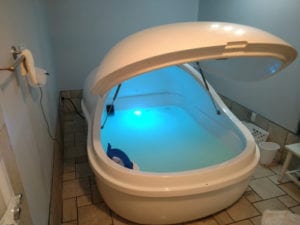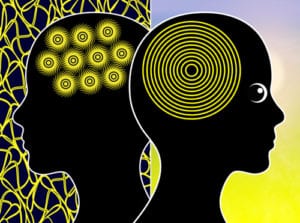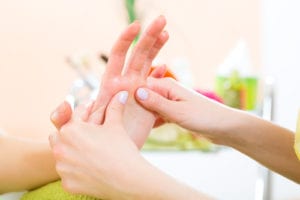College-level study naturally brings with it some degree of stress and nervousness. Stress and nervousness, especially, seem to go hand in hand with academic exams. While some stress and a “slight case of nerves” will likely always be a part of any test taker’s experience, being overly nervous can affect exam performance in a bad way. Being too nervous can affect memory, concentration, cause thoughts to race, cause “blank-outs”, and create other distractions during the exam, as well as give rise, among other things, to feelings of discouragement.
Recommended Schools
If you’re one of those test-takers who gets very nervous about exams and wants to find effective ways to “calm down”, or simply a student looking for ways to manage exam-time stress, read on to learn about twenty time-tested ways to deal with test-time nerves. Some of the methods require longer-term attention and care, while others provide a quick way to settle down when it gets close to test-time.
QUICK LINKS
- Nutritional and Herbal Supplements Can Help Calm Nerves
- Diet Matters
- Make Sure to Study!
- Practice Calmness
- Get Enough Sleep
- Take a Bath with Epsom Salt
- Do Aromatherapy
- Practice Deep Breathing
- Stretch to Relax
- Good Posture is Important to Managing Anxiety
- Have a Nice Cup of Tea
- Hand Massage Can Help You Relax
- Let Out Some Deep Sighs
- Lessen the Weight of Study with Flotation Therapy
- Practice Muscle Relaxation
- Think and Speak Positively About Yourself
- Listen to Calming Music
- Exercise to Reduce Anxiety and Settle Nerves
- Pray and/or Meditate to Calm Nerves
- Keep Perspective
Nutritional and Herbal Supplements Can Help Calm Nerves

Good health, low stress, and calmed nerves are often closely related. Nutrition is a key factor in keeping good health and managing stress and anxiety. Experts say that diet and nutrition play key roles in managing anxiety and herbal and nutritional supplements can serve as a powerful boost to a good diet. Calm nerves during an exam build upon a calm way of life before an exam. The right nutritional or herbal supplement may be part of the remedy for settling one’s nerves on the day of an exam. Commonly used supplements include:
- Passionflower
- Kava
- St. John’s Wort
- Lysine
- Magnesium
- CBD/Cannabidiol is growing in popularity as well.
SEE: Top 13 Online Schools for Master’s of Nutrition Degree Programs
Diet Matters

Recent studies show that anxiety and frazzled nerves partly stem from a poor diet. Test success depends upon keen and focused powers of concentration and memory. Being overly nervous will block the natural ability of the mind to perform. It’s all too common for college students to neglect their diet and form poor eating habits. Since diet can strongly influence the way one handles the stresses of prepping and taking exams, it makes good sense to get good nutrition through a healthy diet. One can try all the calming techniques (listed below) in order to settle pre-exam nerves. But, if there is overall health and dietary issue that is related to anxiety such techniques will be of less effect until the big issue of diet is fixed. Some key dietary factors related to anxiety and nerves are:
Have a well-balanced diet (If you can) avoid excessive alcohol and caffeine before an exam
- Drink enough water
- Magnesium-rich foods such as
Spinach
Swiss Chard - Zinc-bearing foods
Oysters
Cashews
Liver
Beef
Egg yolks - Omega-3
Salmon - Foods with Probiotics
Pickles
Sauerkraut
Kefir - Vitamin B
Avocado
Almonds - Eat foods rich in antioxidants
Beans: red, pinto, red kidney
Fruits: apples, prunes, sweet cherries, plums, black plums
Berries: blackberries, strawberries, cranberries, raspberries, blueberries
Nuts: walnuts, pecans
Vegetables: artichokes, kale, spinach, beets, broccoli
Spices: turmeric and ginger
Recommended Schools
Make Sure to Study!

This one is obvious, right? But, it’s often the simple and obvious truths that are not heeded. If you’re well prepared for an exam and have given the material the needed time and attention to master it, chances are you’ll be feeling a lot less nervous. It sure beats cramming all night, giving up sleep and rushing short of breath into the classroom! If you’ve waited that long, you probably should be nervous! Here are some helpful tips for a productive study:
- Learn as much as you can about the format and expectations for the exam
- Make and keep an organized study schedule early on
- Take good notes
- Focus on success, not past or feared failings
- Be honest and realistic with yourself about expectations
- Practice
- Don’t over study
Practice Calmness

Like a lot of things in life, some people seem to achieve calmness easier than others with little effort. If you’re one of those people who doesn’t naturally just flow with life, you’ll need to practice settling your nerves before going in to take the big exam. Here are some (at times surprising) calming practices for settling those pre-test nerves:
- Glitter jars
- Work through some mazes
- Roll feet over a golf ball
- Color Mandalas
- Crunches
- Look outside
- Look through a kaleidoscope
- Spins
- Jumps
Get Enough Sleep

This is another obvious one, right? Everyone knows that sleep is not just a requirement for academic success but is necessary for good health. A recent study shows that a large majority of college students fail on a regular basis to get enough sleep. A lack of sleep carries with it a number of negative symptoms including depression, lessened affability, memory problems, diminished critical thinking skills as well as anxiety and nervousness. A sleepy student is a poorer and more anxious student. Sources suggest that college students should try to get a minimum of 7-8 hours of solid sleep each night in order to maintain good health and calm those nerves.
SEE: The Importance of a Good Night’s Sleep for Maximum Learning Potential
Take a Bath with Epsom Salt

A warm bath of itself lightens life’s daily burdens. And when Epsom salt is added to the mix emotions are buoyed up and anxiety melts away. For pre-exam anxiety, an Epsom salt bath might just the remedy. Epsom salt contains magnesium sulfate, which helps boost feelings of calm and relaxation. Magnesium, then, is able to be absorbed through the skin. The Sulfate in the salt can help with pain and inflammation. Epsom salt baths have been shown to lessen stress and anxiety, lower blood pressure, and relieve minor aches and pains. Aromatherapy can also be combined with a massage by having the essential oils and scents massages directly into the skin.
Recommended Schools
Do Aromatherapy

Science has not given final proof of the effectiveness of aromatherapy. However, many recent studies have shown a strong connection between aromatherapy and lower stress and anxiety levels. Aromatherapy can be used through a number of applications such as inhalation, topical, and even oral. The most popular method of aromatherapy is through breathing in essential oils, which are often combined with natural scents. Over longer periods, studies show, aromatherapy is most effective. If you get nervous about exams and want to reduce stress and anxiety, aromatherapy is a time-honored way of achieving greater calm. The following are some of the most common and popular essential oils and aromatherapy scents:
- Lavender
- Lemon or Yuzu
- Bergamot
- Ylang Ylang
- Clary Sage
- Jasmine
Practice Deep Breathing

Breathing is good for one’s health! Not a shocker here! All too often, however, stress creates anxiety and nervousness, which affect our breathing patterns. Over a period of time, this seems to reinforce feelings of anxiety and nervousness. Exam nerves can also have this effect. It is important to be aware of breathing when managing stressful situations. Studies show that deep, slow breathing can help manage nerves and avoid panic attacks. Here is a pretty cool page with helpful breathing exercise suggestions that can help with “exam anxiety”.
Stretch to Relax

Many traditions throughout the world have developed very specific forms of stretching in the contexts of meditation, prayer, and/or relaxation. Researchers in several studies (for example here and here) have shown that stretching can help reduce stress and feelings of anxiety and nervousness. A helpful webpage providing instruction on stretching techniques can be found here. So, if you’re having an attack of nerves over an upcoming test, warm up a bit and then stretch your muscles to settles your nerves back down.
Recommended Schools
Good Posture is Important to Managing Anxiety

Everyone remembers their teachers or guardians reminding them to “sit up straight”. While the motives were likely more to do with appearances or concern over long-term effects of poor posture, it turns out they were correct to request good posture. Recent research has shown the connection between good posture and breathing habits, and how both relate to anxiety management. Poor posture causes the lungs not to be able to expand during breathing. This causes breathing to be more shallow and more rapid. Shallow, rapid breathing can induce the “fight or flight” reflex, which is important for emergency situations. However, always being in emergency mode due to poor posture surely isn’t beneficial. On top of the relationship between posture, breathing, and nervousness, good posture can affect one’s self-perception and attitude. A good posture, in a sense, expresses a good self-image. This outward expression, it seems, reflects back upon the inner personality, helping them to believe inwardly what is outwardly being expressed. If you’re having pre-exam anxiety, make a quick check on your posture. You may find that adjusting your posture may help dial down your nervousness.
SEE: Aching Back? Tips and Tricks To Ease An Online Student’s Time At A Computer
Have a Nice Cup of Tea

Tea has been a part of human culture and religion for thousands of years. It even played a significant, if indirect, part in the founding of the United States at the Boston Tea Party. But, did you know that some teas can help reduce anxiety and feelings of stress and nervousness? A warm cup of tea may help you settle nerves frazzled by study and exam anxiety. The warmth of the liquid, the patient’s process of sipping and the effects of the tea itself work together to calm the spirits of every test taker. There are several kinds of tea purported to help calm feelings of stress. There are several brands of tea formulated to boost the feeling of relaxation and calm. The following is a list of the most notable calming teas (one key is to avoid caffeinated varieties):
- Peppermint tea
- Chamomile tea
- Lemon Balm tea
- Passion Flower tea
- Green tea
- Rose tea
Hand Massage Can Help You Relax
Research has established a strong connection between the lessening of stress and anxiety and massage. Since going to a trained masseuse is not always a ready option, hand massage can be self-administered or by a friend. Student’s hands do a lot of work at their keyboards and with their pens. Such a workload builds up tension in one’s hand. Tension can then spread to the entire body. Hand massage can be a quick, inexpensive, and easy way to calm test jitters.
Let Out Some Deep Sighs

Health experts have long recommended deep breathing to reduce feelings of anxiety and nervousness. Slow breathing has been traditionally a way to boost calm. Recent research has suggested that controlled sighing along with slow breathing can rapidly release tension in your chest and neck areas. Rapid breathing triggers the “arousal” center in the brain, which controls the body’s emergency response system. Slow breathing deactivates these response mechanisms. According to one site, sighing:
- Instantly reduces tension by raising blood carbon dioxide level
- Interrupts thoughts that create tension and nervousness
- Points our attention elsewhere
Lessen the Weight of Study with Flotation Therapy

Feel like exam pressures are weighing you down? Some time in a flotation tube might lighten your mood. According to its proponents, flotation can reduce stress. Using Epsom salts and water on a larger scale, flotation therapy is reported to boost feelings of peace and calm. Flotation can replace the benefits of lost sleep. Flotation also fosters deeper meditative states and releases healthy endorphins that calm heightened nerves.
Practice Muscle Relaxation

Muscle relaxation is an effective way to calm exam nerves. Anxiety is often related to greater muscle tension. Such tension tends to reinforce mental strain. The combined effects of muscle and mental tension can cause feelings of heightened stress and nervousness. Although college students cannot fully do away with test anxiety, muscle relaxation techniques are helpful ways of lessening overall stress and nervousness. This site provides helpful information on why muscle tension and relaxation are related to stress and anxiety. This site provides links on how to use muscle relaxation techniques.
Think and Speak Positively About Yourself

This method of relaxation is an aspect of a larger relaxation method called “autosuggestive” or “autogenic” therapy. The key to this technique is to remove or reduce nervousness and stress by turning inward. This inward turn gives “space” for self-evaluation and discovery. Through internal “speech” exercises the person focuses on specific areas of the body or aspects of his or her personality. The goal of this technique is the use of exercises to enhance feelings of self-esteem and boost confidence. Research suggests that this method also profoundly affects bodily states and conditions. By boosting confidence and lowering stress conditions in the body autosuggestive therapy can be a powerful and effective way to calm test-time nerves.
Listen to Calming Music

Science has shown how certain types of music has powerful effects on animals and plants. This also holds true for human beings. A number of recent studies show that psychological states such as anxiety, depression, nervousness are strongly affected by forms of music. If you feel like you are getting too tense about an exam, turn on some soothing music. This can help with relaxation, by slowing heart rate, lowering blood pressure, and even decreasing the level of naturally produced stress hormones. Science and common wisdom have both shown that music is strongly related to emotions. The right kind of music may be the best medicine to find peace and calm before going into an exam. Many suggestions for stress relief music can easily be found on the web.
Exercise to Reduce Anxiety and Settle Nerves
Like some of the other ways to control exam day nervousness, this option will likely take some long-term commitment. Studies have shown there is a strong link between regular exercise and a sense of well-being and health that can reduce anxiety and help with stress. Exercise has been shown to cause the release of “feel-good” endorphin chemicals. Along with the chemical effect, exercise serves to focus the mind away from other concerns, including the big test coming up. Exercise also helps boost confidence, foster more social interaction, and provide healthy ways to cope with the stresses of college life. Some of the most often recommended forms of exercise are:
- Walking
- Jogging
- Biking
- Swimming
- Dancing
SEE: 10 Benefits of Yoga and Exercise Breaks While Studying
Recommended Schools
Pray and/or Meditate to Calm Nerves
Prayer as a method of bringing exam-time nerves that are running wild back under rein will not be for everybody. If you are religious, spiritual, or a person of faith, prayer has been shown to be quite effective in boosting feelings of calm and peace. (Sometimes prayer can increase stress and anxiety, too.) If prayer is not for you, meditation can create similar states of mind that can decrease anxiety and nervousness. (Some research suggests that prayer has a stronger correlation to lowering feelings of anxiety than non-religious meditation. Other research reports both prayer and meditation having similar results.) All in all, if you are nervous it may be good to slow down, collect your thoughts, and say a prayer.
Keep Perspective

If you are overly anxious or nervous about an exam, chances are you have lost a bit of perspective. There is life after the big test. Life is more than scholastic success. It is true that success in college depends a great deal on how you do on your exams and success in college is so important for getting a good job. However, one test will almost never make or break your college career. Good health and study habits will boost confidence for the big exams, and reasonable expectations will help us not put too much pressure on ourselves. So, make it easier, be patient with yourself, and just do the best you can!



